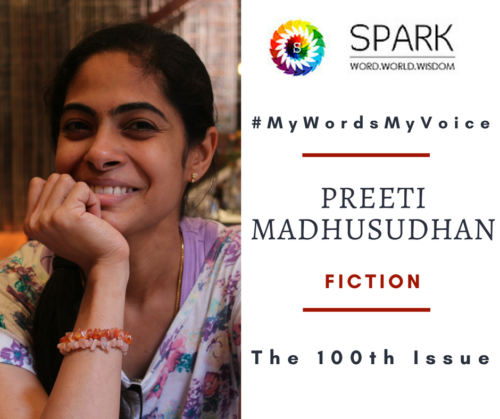by M. Mohankumar
What theme are you addressing in your piece? Why is this important to you?
M. Mohankumar: This poem was inspired by a news report about a rebel-held town on the eastern outskirts of Damascus, besieged by the Government troops. In the midst of death and destruction and the distress caused by the war, some brave children went up the stage and performed a play based on the story of Snow White and the Seven Dwarfs. I was thrilled to read it. Here is a remarkable instance of the creative spirit asserting itself in the most unlikely circumstances. I also saw it as a protest, however feeble, of innocent children against the immense suffering inflicted by the war. And I was struck by the parallelism between the suffering princess of the story and the suffering town, and the message of redemption that it seemed to convey. I am saddened when I come across unmerited suffering. At the same time, I am fascinated by the resilience of the human spirit and the rebuilding that takes place after the destruction. This is something that happens in our lives, and in the lives of the nations. These mixed feelings, working in my mind, led to the writing of the poem.
The streets are littered with the rubble of war.
Smoke of crossfire hangs in the air. Hundreds
have fled; many were shot while fleeing.
The dead have been buried; the wounded
languish in the hospital− or what remains of it.
Others stay put, determined to stick it out,
shoring up their ruins as best they could.
In the lucid interval of an evening, the children
stage a play in their tumbledown school:
a lovely princess is hounded by her wicked
stepmother, survives the near-fatal attacks,
and is rescued by a prince who marries her.
In the crowded hall, many eyes wet with tears.
Did they see in the play the image of a town
laid waste by war, benumbed? Did they read
in it a message that, on a not-too-distant day,
deliverance would come, out of the blue?
Someone in the crowd cries out: Flowers
can bloom − yes, they can −on the rocks of pain.






